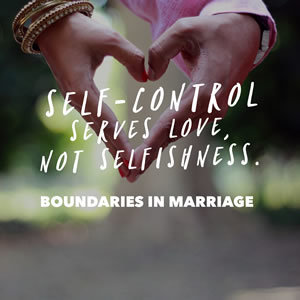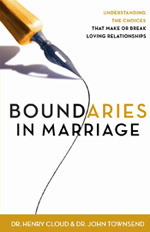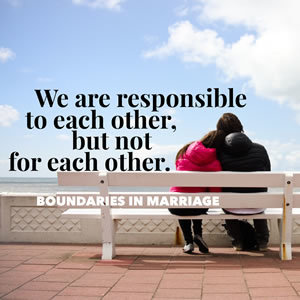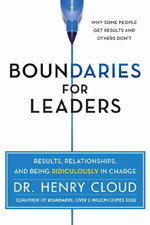Henry Cloud's Blog, page 13
January 22, 2018
Two Reasons Why You Should Say No to Physical Intimacy in Dating
 If you have hung around the church for very long, you have probably heard that God wants people to reserve sex for marriage. If you haven’t and that is news to you, then we can understand the shock you might be feeling. For many people, both inside and outside of the church, it does not make sense. If sex feels so good, and is good for the relationship, and both people are consenting, then what is the problem?
If you have hung around the church for very long, you have probably heard that God wants people to reserve sex for marriage. If you haven’t and that is news to you, then we can understand the shock you might be feeling. For many people, both inside and outside of the church, it does not make sense. If sex feels so good, and is good for the relationship, and both people are consenting, then what is the problem?
Consider this viewpoint: When someone can say no to sex while dating, their behavior is a sign that he or she is capable of delaying gratification and exhibiting self-control, which are two prerequisites of the ability to love. If someone cannot delay gratification and control himself or herself in this area, what makes you think that they can delay their own gratification in other areas of sacrifice? What is going to curb the “I want what I want now” mentality in the rest of life? If someone is able to respect the limit of hearing no for sex, then that is a character sign of someone who can say no to their own desires and hungers in order to serve a higher purpose, or to love another person.
You fall in love with a person and think about making a real, committed relationship with him or her. Naturally, that is going to mean some sacrifice down the road. You are going to want to be with a person who can deny himself or herself for the sake of your relationship in many areas. Think of the areas of sacrifice that a relationship takes. There are sacrifices of time, when you might want to spend time on your favorite hobby, and yet the family needs you. There are sacrifices of money. One person may want to buy a new car, and yet the family needs money for the home. There are sacrifices of getting one’s way. One person may want to go to one place for dinner and the others want something different.
Most importantly, there is the sacrifice that it takes to work out conflict. One person is hurt and wants to strike back in anger or hurt, yet to reconcile, the ability to put one’s own desires aside for the sake of the relationship is necessary. If someone does not have self-control and delay of gratification in pleasure, can they delay the gratification of getting his or her own way in conflict?
Think about it. Wouldn’t you want to be with a person who can hear and respect the “no” of others? Having a boundary in sex while you are dating is a very important test to see if the person loves you. We have all heard people refer to the line “If you love me, you will.” In reality, you should say back, “If you love me, you won’t make demands that I do not feel comfortable with.” Love waits and respects, but lust must have what it wants now. Are you being loved, or are you an object of self-serving lust? Saying no is the only way to know.
We cannot overemphasize the value of dating a person who can delay their own gratification. If you are with someone who ultimately has to have what they want when they want it, you are in for a long time of misery. Choose someone who can delay gratification for the sake of you and the relationship. To the extent that he or she says, “I must have what I want now,” you are in trouble. Boundaries with sex are a sure-fire test to know if someone loves you for you.
________
Learn more about how healthy choices grow healthy relationships by reading Boundaries in Dating by New York Times bestselling authors Dr. Henry Cloud and Dr. John Townsend.
Get The 10 Laws of Boundaries eBook when you subscribe to the Boundaries Weekly email newsletter. Learn More
The post Two Reasons Why You Should Say No to Physical Intimacy in Dating appeared first on Boundaries Books.
January 5, 2018
Why Church Can Be a Dangerous Place
 I (Henry) got an emergency call, and the office relayed to me that I had a suicidal client. I called Theresa on the phone. She was distraught.
I (Henry) got an emergency call, and the office relayed to me that I had a suicidal client. I called Theresa on the phone. She was distraught.
“Tell me what happened,” I said.
“It’s not going to work,” Theresa replied, sobbing.
“What isn’t going to work?”
“Telling other people about my problems,” she said. “I went to my fellowship group tonight and told them about the depression and the problems with Joey, and they really came down on me for being depressed and for all the other stuff that has been going on.”
“What did they say?”
“Well, they said that I shouldn’t feel that way and that if I was still having all those problems then I probably wasn’t walking with the Lord. I don’t know what to do anymore. I’ve tried all this ‘safe relationship’ stuff, sharing and all that, and now it doesn’t work.”
“What would you say if I told you that you still haven’t found safe relationships?” I asked.
“What do you mean?” Theresa asked. “They are all Christians and in my church.”
“Well, Christian doesn’t automatically mean ‘safe,’ ” I told her. “Safe is defined by helpful. It doesn’t sound like tonight was too helpful.”
“Well, how do you know a helpful relationship?” she asked.
“That’s a good question,” I said. “Let’s talk about that.”
I empathized with Theresa. She had discovered a real truth: the church is not a perfectly safe place. That sounds like it cannot be true, for if anywhere should be safe, the church should be. Every fiber in our being rejects the idea that the one place we think ought to be safe — the house of God — isn’t.
The church is not a totally safe place, and it does not consist of only safe people. As much as we would like for it to be totally safe, the truth is that the church has to be seen the way God describes it. We must, if we are going to have a biblical view of relationships and people, and live the way that God wants us to live, see the church as he describes it. Our faith must be able to square with the reality of life as we find it and with the reality that the Bible describes to us. Let’s look at those two realities.
Theresa was echoing the experience of many people. Anyone who has been in the church for very long has been hurt by people in the church. For in the body of Christ, we find some harsh realities: judgment, pride, self-centeredness, manipulation, abandonment, abuse, control, perfectionism, domination, and every kind of relational sin known to humankind. The walls of the church do not make it safe from sin. In fact, the church by definition is composed of sinners.
To further complicate matters, church by its very nature as a family of God activates our most primitive and dependent longings because we want a perfect family. God designed the church to be our second family, and often we take into the church the same longing for security and love that we take into our families of origin. And for some, as in their original family, the wish is not only disappointed — it can be crushed altogether. What are we to do with that reality?
The one difference is that, as adults entering into the family of God, we have choices about who we are going to trust and get close to. David said in Psalm 101:6 that we can pick the “ones who will minister to [us].” But we are not by nature so discerning. We come into the church feeling and wishing, “Take care of me. I need you. I shouldn’t have to first figure out who is safe and who is not. You should be good and trustworthy.” We feel the longing of Romans 8 that says that we long for and groan for our adoption. We want things to be right. And then they are not.
On the other hand, many of us have felt that the body of Christ has nurtured, loved, and taught us in ways that have radically healed us. Through the acceptance and love of other believers our character has changed, and we have slowly let go of the things that shackle us.
We also hear others testify to that reality. They were destroyed by their families, or the world, and they were saved and healed in their church. Someone — or a group — in the church reached out to them, and their lives were radically changed.
I (Henry) can testify to this. I had dreamed and planned my whole life to play professional golf, from the age of six until I was recruited by a nationally ranked college to play varsity golf. I was beginning to compete on higher and higher levels and doing quite well. I thought my dreams were being realized.
Then catastrophe hit. A tendon problem in my left hand snatched my budding career right out from under me. I could no longer even hold onto a golf club, and there was no cure. I was lost and devastated. The path that I had diligently worked towards for fifteen years, day and night, had hit a dead end. At the same time, I encountered some other significant losses in my life. Things were falling apart. I got seriously depressed.
At first I tried to work my way out of it. I had always been a “don’t ever give up” kind of person, especially in sports. I thought I could lick this problem in the same way, through sheer hard work and willpower. But I got more and more depressed, and nothing was filling the hole inside of me. The depression and lostness continued to build until I decided to drop out of everything to try to sort things out.
I first reached out to God, telling him that I did not even know if he existed, but that if he would show me that he did, I would do what he told me to do. After all, my way wasn’t working.
Less than an hour after I prayed that prayer in a little chapel at Southern Methodist University, my phone rang. A friend I hadn’t talked to in quite some time told me that he and some others were starting a Bible study and that for some strange reason, he thought that he would invite me to come. I told him I would, not quite believing what had just happened.
To make a long story short, the leader of that Bible study and his wife invited me to come live with them for a semester while I sorted things out. Their gift of themselves to me forever changed my life. Their love and teaching touched some very deep parts of me as they led me to the reality of a relationship with God. He had found me, and through the love and acceptance of his body, I was being healed.
So the church can be a healing place, a place where lives are transformed and where powerful love and healing can take place. The body of Christ is still God’s instrument for our healing and restoration (1 Peter 4:10; Ephesians 4:16). So, the question arises and rings in our needy hearts: Is the church safe, or is it dangerous? The answer is, “It is both.” Sometimes we are fortunate to find good relationships, and other times we run into disaster.
The sad thing is that our ideals for the church do not reflect biblical reality, either. We think that the Bible promises a church where we find only safe people. But the Bible says that the church is full of wolves as well as sheep. In the church, we will find both tremendous healing and potentially tremendous hurt. And if we are going to find healing and minimize hurt, we need to make sure that we see the church as God describes it to us. We need to operate according to biblical reality instead of our fantasized wishes, for biblical reality is the one that will fit the experience we find in the real world.
Our experience and the Bible affirm the same thing. The church is full of safe people, unsafe people, and hurtful lingerers. There is no perfect family short of heaven. But there is also no absolute hell full of demons either. And the Bible’s clear message is that we need to be discerning. We need to make informed choices, and we need to be careful. But we also need to avoid becoming pessimistic and learn to recognize the goodness that abounds within the family of God (Matt. 25:34 – 40). If we become skeptics and give in to our fears of bad outcomes, God says that we will lose the little that we have.
So, the long and the short of it is that we have to work to find safe people, using our wisdom, discernment, and character. We gain wisdom and discernment through knowledge and experience. But if our own character problems get in the way of using our knowledge and experience we will make poor choices. We need to make sure that we are facing the weaknesses inside and dealing with them, becoming people of character who can choose other people of character, with a knowledge of what they look like. As we get the log out of our own eye first, we will be able to see clearly.
________
Adapted from Safe People: How to Find Relationships That Are Good for You and Avoid Those That Aren’t by Dr. Henry Cloud and Dr. John Townsend. Learn more about this helpful book.
Get The 10 Laws of Boundaries eBook when you subscribe to the Boundaries Weekly email newsletter. Learn More
The post Why Church Can Be a Dangerous Place appeared first on Boundaries Books.
November 27, 2017
Are You Blackmailing Your Children?
 “Every time I disagree with my mother, even on little things, I feel this terrible sense that she’s not there anymore,” mused Ingrid over coffee with her friend Alice. “It’s like she’s hurt and withdrawn, and I can’t get her back. It’s really a horrible feeling to think you’ve lost someone you love.”
“Every time I disagree with my mother, even on little things, I feel this terrible sense that she’s not there anymore,” mused Ingrid over coffee with her friend Alice. “It’s like she’s hurt and withdrawn, and I can’t get her back. It’s really a horrible feeling to think you’ve lost someone you love.”
Let’s be honest. None of us enjoys being told no. It’s difficult to accept another person’s refusal to give support, to be intimate, or to forgive. Yet good relationships are built on the freedom to refuse and confront. Proverbs 27:17 says, “As iron sharpens iron, so one man sharpens another.”
Good relationships are built on appropriate no’s. Even when we’re children, young or old, we need to know our boundaries will be honored. It is crucial that our disagreements, our practicing of saying no, and our experimentation will not result in a withdrawal of love.
How often do we hear the statement that “God loves the sinner, but hates the sin”? It’s true. His love is constant and never fails. When parents detach from a misbehaving young child instead of staying connected and dealing with the problem, God’s constant love is misrepresented.
When parents pull away in hurt, disappointment, or passive rage, they are sending this message to their youngster: You’re lovable when you behave. You aren’t lovable when you don’t behave. A child translates that message something like this: When I’m good, I am loved. When I’m bad, I am cut off.
God created people with a need for attachment and relationship. In essence, parents who pull away from their child, whether young or old, practice spiritual and emotional blackmail. The child can either pretend to not disagree and keep the relationship, or he can continue to separate and lose his most important relationship in the world. Thus, he will most likely keep quiet.
Children whose parents withdraw when they start setting limits learn to accentuate and develop their compliant, loving, sensitive parts. At the same time, they learn to fear, distrust, and hate their aggressive, truth-telling, and separate parts. If someone they love pulls away when they become angry, cantankerous, or experimental, children learn to hide these parts of themselves.
Parents who tell their children, “It hurts us when you’re angry” make the child responsible for the emotional health of the parent. In effect, the child has just been made the parent of the parent — sometimes at two or three years old. It’s far, far better to say, “I know you’re angry, but you still can’t have that toy.” And then to take your hurt feelings to a spouse, friend, or the Lord.
By nature, children are omnipotent. They live in a world where the sun shines because they were good, and it rains because they were naughty. Children will give up this omnipotence gradually over time, as they learn that needs and events besides theirs are important. But during the early years, this omnipotence plays right into boundary injury. When children feel parents withdrawing, they readily believe that they are responsible for Mom and Dad’s feelings. That’s what omnipotent means: “I am powerful enough to make Mom and Dad pull away. I’d better watch it.”
A parent’s emotional withdrawal can be subtle: A hurt tone of voice. Long silences for no reason. Or it can be overt: Crying spells. Illness. Yelling. Children of parents like these grow up to be adults who are terrified that setting boundaries will cause severe isolation and abandonment.
Please don’t misunderstand this. Parents setting boundaries with their children is crucial. Children need to know behavioral lines that should not be crossed. They need to suffer biblical, age-appropriate consequences for acting out. (In fact, when parents do not set and maintain good boundaries with their children, the children suffer another type of boundary injury.
What we’re talking about here isn’t allowing the child free rein. Parents need to stay attached and connected to their children even when they disagree with them. That doesn’t mean they shouldn’t get angry. It means they shouldn’t withdraw.
________
With over 2 million copies sold, The New York Times bestseller Boundaries, now updated and expanded, is the best resource for learning how to set limits and make wise decisions in any relationship. Click here to learn more.
Get The 10 Laws of Boundaries eBook when you subscribe to the Boundaries Weekly email newsletter. Learn More
The post Are You Blackmailing Your Children? appeared first on Boundaries Books.
October 16, 2017
Adults: Do Not Obey Your Parents
 As an adult, loving and honoring your parents does not equal obeying. God placed you with your parents for a season of time to help you grow into a mature adult. At some point this season ends, and your relationship with your mom and dad changes from child-to-parent to adult-to-adult. The roles change from dependency and authority to mutuality. While you are to respect and care for your parents, you are no longer under their protection and tutelage. Children are to obey parents, while adult children are to love and honor them. Therefore, sometimes you will need to confront parents, disobeying their desire for you to agree with them or go along with a bad situation.
As an adult, loving and honoring your parents does not equal obeying. God placed you with your parents for a season of time to help you grow into a mature adult. At some point this season ends, and your relationship with your mom and dad changes from child-to-parent to adult-to-adult. The roles change from dependency and authority to mutuality. While you are to respect and care for your parents, you are no longer under their protection and tutelage. Children are to obey parents, while adult children are to love and honor them. Therefore, sometimes you will need to confront parents, disobeying their desire for you to agree with them or go along with a bad situation.
People often have difficulty confronting parents, because they still feel like a little child with them. Emotionally they have not left home, so they do not feel free to be separate, truthful, and honest with them. There is too much to lose. If this sounds like you, it might be very helpful to work on these issues in a small-group setting or with a counselor in order to free yourself up from the past so that you can be an adult in the present.
One concrete example of moving out of obedience and dependence on parents happens when you decide that you will not spend some traditional holiday time with your parents. This can often be a cause for a confrontational talk:
You: “Mom, I wanted to let you know as soon as I could that I’ve made plans to go to the mountains with some friends this Christmas. I know this will be the first Christmas I won’t be with you and Dad, so I wanted to talk to you about it.”
Mom: “What are you talking about? You always spend Christmas with us. Your father will be so hurt.”
You: “I’m so sorry you feel that way. I would never want to hurt you. But this year I have a really good group of friends from my singles group at church that I want to spend the holidays with. It’s not about not caring about you; it’s about wanting to be involved with these people at a deeper level.”
Mom: “Can’t you do that at another time? I mean, it will ruin our holiday.”
You: I hope it doesn’t ruin things for you. That’s why I’m telling you this several months in advance, so you can make sure you have time to make any other arrangements you need to so your holiday will be good.
Mom: “Don’t you care about how we feel?”
You: “Yes, Mom, I care very much. And I do like spending time with you. If you think that I don’t care, then maybe we can talk at some other point about your feelings, because I would like to reassure you that I care. But the point of this phone call was simply to give you a heads up so that we can plan and adjust for this change.”
In addition, don’t forget that your parent may need for you to be a change agent in her life. You may be one of the few people in her circle who is aware of her hurtful behavior or attitude. So, just as her job was to correct you in years past, your job (without the parental authority role) may be to correct her in the present. I know of many situations in which an adult child’s confrontation of a parent was life changing for both.
________
The award-winning book, Boundaries, includes specific chapters dedicated to helping you solve problems with your family, children, spouse, friends, and co-workers. Learn how to set effective limits and still be a loving person. Now Updated & Expanded! Learn More
Get The 10 Laws of Boundaries eBook when you subscribe to the Boundaries Weekly email newsletter. Learn More
The post Adults: Do Not Obey Your Parents appeared first on Boundaries Books.
August 22, 2017
What Boundaries Are Really All About
 There is a lot of misunderstanding about boundaries, especially in the context of marriage. Some people are against boundaries because they see them as selfish. Other people actually use boundaries to be selfish. Both are wrong. Boundaries in marriage are basically about self-control.
There is a lot of misunderstanding about boundaries, especially in the context of marriage. Some people are against boundaries because they see them as selfish. Other people actually use boundaries to be selfish. Both are wrong. Boundaries in marriage are basically about self-control.
A client once said to me (Dr. Townsend), “I set some boundaries on my husband. I told him that he could not talk to me that way anymore. And it did not work. What do I do now?”
“What you have done is not boundaries at all,” I replied.
“What do you mean?”
“It was your feeble attempt at controlling your husband, and that never works.” I went on to explain that boundaries are not something you “set on” another person. Boundaries are about yourself.
My client could not say to her husband, “You can’t speak to me that way.” This demand is unenforceable. But she could say what she would or would not do if he spoke to her that way again. She could set a boundary “on herself.” She could say, “If you speak to me that way, I will walk out of the room.” This threat is totally enforceable because it has to do with her. She would be setting a boundary with the only person she could control: herself.
When you build a fence around your yard, you do not build it to figure out the boundaries of your neighbor’s yard so that you can dictate to him how he is to behave. You build it around your own yard so that you can maintain control of what happens to your own property. Personal boundaries do the same. If someone trespasses your personal boundaries in some way, you can take control of yourself and not allow yourself to be controlled, or hurt, anymore. This is self-control.
And ultimately, self-control serves love, not selfishness. We hope that when you take control of yourself, you will love better and more purposefully and intentionally so that you and your spouse can have the intimacy you desire.
________
 For more insights to improve the way you interact with your spouse, read Boundaries in Marriage.
For more insights to improve the way you interact with your spouse, read Boundaries in Marriage.
The post What Boundaries Are Really All About appeared first on Boundaries Books.
July 31, 2017
I Am in Control of My Choices
 Any time is a great time to take stock of boundaries in our lives and renew the desire to take responsibility for our choices. This leads to the fruit of “self-control.” A common boundary problem is disowning our choices and trying to lay the responsibility for them on someone else.
Any time is a great time to take stock of boundaries in our lives and renew the desire to take responsibility for our choices. This leads to the fruit of “self-control.” A common boundary problem is disowning our choices and trying to lay the responsibility for them on someone else.
Think for a moment how often we use the phrases, “I had to” or “She (he) made me” when explaining why we did or did not do something. These phrases betray our basic illusion that we are not active agents in many of our dealings. We think someone else is in control, thus relieving us of our basic responsibility.
We need to realize that we are in control of our choices, no matter how we feel. This keeps us from making choices to give “reluctantly or under compulsion,” as 2 Corinthians 9:7 says. Paul would not even accept a gift that he felt was given because the giver felt he “had to” give it. He once sent a gift back so “that any favor you do will be spontaneous and not forced” (see Philemon 1:14).
Jesus said a similar thing to the worker who was angry about the wage for which he had agreed to work: “Friend, I am not being unfair to you. Didn’t you agree to work for a denarius?” (Matthew 20:13). The man had made a free choice to work for a certain amount and was angry because someone who had worked fewer hours had gotten the same wage.
Throughout the Scriptures, people are reminded of their choices and asked to take responsibility for them. Like Paul says, if we choose to live by the Spirit, we will live; if we choose to follow our sinful nature, we will die (Romans 8:13). Making decisions based on others’ approval or on guilt breeds resentment, a product of our sinful nature. We have been so trained by others on what we “should” do that we think we are being loving when we do things out of compulsion.
Setting boundaries inevitably involves taking responsibility for your choices. You are the one who makes them. You are the one who must live with their consequences. And you are the one who may be keeping yourself from making the choices you could be happy with.
________
With over 2 million copies sold, Boundaries is one book that can radically change your life! Read this New York Times bestseller for the first time or re-read it to renew the power of boundaries in all of your relationships.
________
 Keep your journey to freedom alive with weekly injections of BOUNDARIES wisdom, and get a FREE SAMPLER!
Keep your journey to freedom alive with weekly injections of BOUNDARIES wisdom, and get a FREE SAMPLER!
With this sampler, you will learn the secrets of:
How to set limits in a loving way
How to make marriage a haven of caring and respect
How to define appropriate consequences with your kids
How to restore broken relationships to a healthy dynamic
How to achieve the performance you desire as a leader
Click here to learn more.
The post I Am in Control of My Choices appeared first on Boundaries Books.
July 25, 2017
Do This One Thing to Improve Any Relationship
 People who want to improve a relationship often talk about talking. That is, they bring up what happened, what went wrong in their experience, and come up with solutions. Here are some examples:
People who want to improve a relationship often talk about talking. That is, they bring up what happened, what went wrong in their experience, and come up with solutions. Here are some examples:
Remember when I said I needed space and listening, not solutions and homework assignments? It happened again; let’s fix this.
I don’t want to sound childish, but I’ve been trying to be more open about the job problem, and it still feels as if you want just good news from me about work. I really need you to hang in there with me.
It feels as if you’re impatient with me when I go to a deeper level now, as if I ought to have my act together. That’s hard for me; are you really feeling that way?
When I brought up the problems I have with my dad, you lost eye contact and started talking about something else. This is really important for me; are you okay with all this? Is there a way I can do this differently, or do you not want me to talk about this with you?
If you want a better relationship, be a team player with the other person. In responding, you must have no hint of judgment or a critical spirit. You are forging a way to connect, and never forget that the “we” comes first. You want to recruit the person to vulnerable language, to help solve the glitch and move on.
Acknowledge that maybe you aren’t being clear or that this is new for both of you. Vulnerability works both ways. If the other person feels a lot of performance pressure to “get it right,” she won’t be able to speak from her heart. And you are after a heart-to-heart attachment; that’s the whole idea.
I have coached many husbands on how to be empathic. Lots of them don’t naturally know the right things to say, so I give them some examples that I hope trigger and resonate with what they really feel toward their wives. Statements like these are good examples:
That must have been hard.
Tell me more.
How did that make you feel?
That’s tough; anything I can do to help?
These are simple things to say that convey understanding and support. Guys being guys, they often say, “Great idea,” and write them down so they can remember them. The problem comes when they run through the list and recite them!
Most wives catch on in about three seconds, and then there is a talk about the talk about the talk. So let the person know, “You don’t have to do this right; I certainly don’t myself. I just need to know you feel something positive toward me when I am feeling negative.” And that covers many errors.
________
For more relationship answers that move you toward genuine closeness and intimacy, get a copy of Beyond Boundaries. Read a sample chapter and purchase today!
The post Do This One Thing to Improve Any Relationship appeared first on Boundaries Books.
July 17, 2017
A Guaranteed Way to Create Trouble in a Relationship
 I (Dr. Cloud) can still remember what happened that day when I was eight years old. I made a big mistake, but I didn’t know it at the moment. I thought I was getting back at my sister, who was sixteen at the time. Opportunities for revenge were few and far between, and I was not about to let this one slip by. Sharon and her friend were goofing around in the den when one of them threw a pillow and broke the overhead light. They quickly figured out a way to arrange the light in such a way that you could not tell it was broken. They thought that they were off the hook. Little did my sister know that she had a sociopathic little brother with a plan.
I (Dr. Cloud) can still remember what happened that day when I was eight years old. I made a big mistake, but I didn’t know it at the moment. I thought I was getting back at my sister, who was sixteen at the time. Opportunities for revenge were few and far between, and I was not about to let this one slip by. Sharon and her friend were goofing around in the den when one of them threw a pillow and broke the overhead light. They quickly figured out a way to arrange the light in such a way that you could not tell it was broken. They thought that they were off the hook. Little did my sister know that she had a sociopathic little brother with a plan.
When my father came home, I could not wait to tell him what they had done. I told him that they had broken the light, and he asked me to show him. I led him into the den, not knowing that Sharon and her friend were still in there. I was caught. Here he was, asking me about the broken light, and there they were, watching me seal my fate as a tattletale. I do not remember what he did to them, but I can still recall what they did to me, and it was not pretty.
It would be years before I understood the principle involved in this incident. But on that day I understood the reality: When you go behind someone’s back, you can expect trouble in the relationship.
One of the most important principles in relationship is direct communication and full disclosure of whatever is going on in the relationship. I had never communicated to my sister what I thought about what she did, given her a chance to turn herself in, or even cared enough to find out if she planned to tell Dad in her own time. My actions had two overriding motivations: I wanted my sister to pay, and I was afraid to be direct with her. I was foolish enough to think that I could pull it off without her knowledge and that I wouldn’t have to deal with her anger.
Since I have become a psychologist, I have learned a lot about the destructiveness of indirect communication. This is how it happens. I have a problem with Person A, and I tell Person B. Now I have three problems: The first one that I told Person B about, the second one of Person B having feelings about person a that a doesn’t know about, and the eventual problem of Person A finding out that I told B and feeling betrayed by me.
The cousin of that dynamic occurs when Person A tells me something about Person B and then I tell Person B. B is angry with A, and A does not know why. Later, A is mad at me for telling B, or in denial that he ever said anything to me in the first place.
The Bible says much about this kind of indirect communication of truth and also about the restorative value of direct communication. Here is a sample of how God feels about our not being honest in communication:
He who conceals his hatred has lying lips, and whoever spreads slander is a fool (Proverbs 10:18).
Rebuke your neighbor frankly so you will not share in his guilt (Leviticus 19:17).
When I say to a wicked man, “You will surely die,” and you do not warn him or speak out to dissuade him from his evil ways in order to save his life, that wicked man will die for his sin, and I will hold you accountable for his blood (Ezekiel 3:18).
Therefore each of you must put off falsehood and speak truthfully to his neighbor, for we are all members of one body…Do not give the devil a foothold (Ephesians 4:25, 27).
Being indirect in our communication can show us to be foolish, make us a part of the problem, make us accountable for the existence of the problem, and cause us to get caught up in the Devil’s snare as we bury anger and strife.
Along with being against indirect communication, God also has much to say about the importance of direct communication in relationships and resolving things with another person:
If your brother sins against you, go and show him his fault, just between the two of you. If he listens to you, you have won your brother over (Matthew 18:15).
Therefore, if you are offering your gift at the altar and there remember that your brother has something against you, leave your gift there in front of the altar. First go and be reconciled to your brother; then come and offer your gift (Matthew 5:23–24).
Better is open rebuke than hidden love (Proverbs 27:5).
Direct communication is the best way to go through life. But many people do not deal with others in that fashion. Instead, they practice avoidance (ignoring the person or the problem) or triangulation (bringing in a third person) or overlooking.
In Boundaries, The Law of Exposure says that life is better lived in the light — that is, things are better out in the open, even if these things are negative. Whether the news is bad or not, we need to know it. Conflict or hard feelings cause a break in the connection between two people, and relationship can only be restored by communicating honestly.
________
Taken from The New York Times bestseller Boundaries by Dr. Henry Cloud and Dr. John Townsend. Click here to learn more and read a sample.
The post A Guaranteed Way to Create Trouble in a Relationship appeared first on Boundaries Books.
July 10, 2017
You Are Not Responsible for Your Spouse
 When you marry someone, you take on the burden of loving your spouse deeply and caring for him or her as for no other. You care about how you affect your spouse; you care about your spouse’s welfare and feelings. If one spouse feels no sense of responsibility to the other, this spouse is, in effect, trying to live married life as a single person. On the other hand, you can’t cross the line of responsibility. You need to avoid taking ownership for your mate’s life.
When you marry someone, you take on the burden of loving your spouse deeply and caring for him or her as for no other. You care about how you affect your spouse; you care about your spouse’s welfare and feelings. If one spouse feels no sense of responsibility to the other, this spouse is, in effect, trying to live married life as a single person. On the other hand, you can’t cross the line of responsibility. You need to avoid taking ownership for your mate’s life.
The law of responsibility in marriage is this: We are responsible to each other, but not for each other. The Bible teaches it this way: “Carry each other’s burdens, and in this way you will fulfill the law of Christ” and “each one should carry his own load” (see Galatians 6:2, 5). The word burden indicates a backbreaking boulder, such as a financial, health, or emotional crisis.
Spouses actively support each other when one is carrying an overwhelming burden. The term load, however, indicates one’s daily responsibilities of life. This includes one’s feelings, attitudes, values, and handling of life’s everyday difficulties. Spouses may help each other out with loads, but ultimately, each person must take care of his own daily responsibilities.
Two extremes occur in marriage when the law of responsibility is not obeyed. On the one hand, a husband will neglect his responsibility to love his wife. He may become selfish, inconsiderate, or hurtful. He will not consider how his actions affect and influence his mate. This is being irresponsible to a spouse.
On the other hand, a husband may take on responsibility his wife should be bearing. For example, his wife may be unhappy, and he may feel responsible for her happiness. Perhaps he feels that he isn’t making enough money, showing enough interest in her activities, or helping enough around the house. So he tries and tries to make an unhappy person happy. This is an impossible project. While a husband should be sympathetic toward his unhappy wife and take responsibility for his own hurtful behavior, he shouldn’t take responsibility for her feelings. They are hers, and she must handle them herself.
Couples have a duty to set limits on each spouse’s destructive acts or attitudes. For example, if a husband has a gambling problem, his wife needs to set appropriate limits, such as canceling his credit cards, separating their joint accounts, or insisting that he get professional help, to force him to take responsibility for his problem. The law of responsibility in marriage means that spouses refuse to rescue or enable the sinful or immature behavior of their partners.
________
 Whether you’re a newlywed or married for many years, learn how Boundaries in Marriage will help you build a foundation for your relationship to flourish.
Whether you’re a newlywed or married for many years, learn how Boundaries in Marriage will help you build a foundation for your relationship to flourish.
Image courtesy of stockimages at FreeDigitalPhotos.net
The post You Are Not Responsible for Your Spouse appeared first on Boundaries Books.
June 22, 2017
Are You Ridiculously in Charge as a Leader?
 Recently I (Dr. Cloud) was discussing personnel issues with a CEO. I asked him why he thought those problems were there. He talked about some reasons, most of which had to do with the various players involved, and also the “constellations” of a few teams. But then I asked him a simple question. “And why is that?” I asked.
Recently I (Dr. Cloud) was discussing personnel issues with a CEO. I asked him why he thought those problems were there. He talked about some reasons, most of which had to do with the various players involved, and also the “constellations” of a few teams. But then I asked him a simple question. “And why is that?” I asked.
“What do you mean? I think it is the reasons I just said.”
“I know the reasons you said, but why do those reasons exist?” I continued.
“I don’t get it. What do you mean?” he asked further.
“Who is the leader? Who is in charge of the culture? Who is in charge of the ways that it is working, the fact that all of that exists?” I pushed.
He just looked at me, and nodded. “I am,” he said.
“So what kind of culture would you like?” I asked. “What kind of culture would drive the business forward if you had it?”
When he thought about that, he looked upward, lost in thought for a moment. Then he got out of the “problem-speak” mode, and I could see a shift in his energy as a new vision of a different culture sprang to life in his eyes. He began to describe a company culture that was positive, highly energetic, accountable, innovative, and performance oriented. He came alive when he talked about it. “So why don’t you build that kind of culture?” I asked.
For a nanosecond it seemed like he was about to reflexively blurt out a reason why it could not happen, but then he paused and said something I will never forget: “You know, when you think about it … I am ridiculously in charge.”
At that point, I knew he got it. He realized that he would have exactly the culture that he creates and would not have the one he did not allow to exist. Whatever culture he got, he was either building it or allowing it. He was “ridiculously in charge,” that is, “totally in charge,” and at that moment, he owned it. It was his. It was truly up to him. As a leader, he was going to get what he built, or what he allowed.
In your leadership at work or at home, are you building the environment you want or just allowing things to happen? What change could you initiate to be ridiculously in charge?
________
 For more insights to improve your leadership skills, read Boundaries for Leaders by Dr. Henry Cloud. Learn more about this helpful resource.
For more insights to improve your leadership skills, read Boundaries for Leaders by Dr. Henry Cloud. Learn more about this helpful resource.
The post Are You Ridiculously in Charge as a Leader? appeared first on Boundaries Books.



